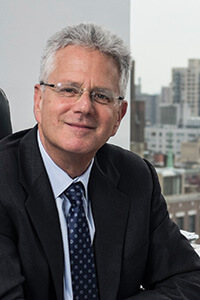Sarah Hollingsworth “Holly” Lisanby, M.D., is an internationally renown physician, psychiatrist, researcher, leader, and innovator of neuromodulation technologies to study and treat psychiatric disorders. She was the first woman to become Chair of the Department of Psychiatry of Duke University. Dr. Lisanby is well known for her pioneering research leading to the FDA approval of novel devices for the treatment of depression (including Transcranial Magnetic Stimulation (TMS) and vagus nerve stimulation (VNS)) and on novel devices in development (including Magnetic Seizure Therapy).
In 2025, Dr. Lisanby became the founding dean of the Arizona State University (ASU) School of Medicine and Advanced Medical Engineering, the centerpiece of ASU Health.
For many years prior, Dr. Lisanby was Director of the Division of Translational Research at NIMH, which funds research supporting the discovery of preventions, treatments, and cures for mental illness across the lifespan. As Director of the Division of Translational Research at the National Institute of Mental Health (NIMH), she was responsible for managing a portfolio of approximately $400 Million to support research directed towards the discovery of preventions, treatments, and cures for mental illness across the lifespan. She was Founder and Director of the Noninvasive Neuromodulation Unit in the NIMH Intramural Research Program, a productive translational research program specializing in the use of brain stimulation tools to measure and modulate neuroplasticity to improve mental health.
Prior to being recruited to the federal government, she held the JP Gibbons Endowed Professorship with Tenure and served as Chair of the Duke University Department of Psychiatry, a department which employs approximately 800 individuals, including 400 faculty and 400 staff, and includes the Duke-affiliated Durham VA Medical Center and Duke-affiliated Central Regional State Psychiatric Hospital. She founded and directed both the Duke University and the Columbia University Divisions of Brain Stimulation, where she built interdisciplinary research programs specializing in the convergence of Psychiatry, Neuroscience and Engineering. She co-led and currently serves on the NIH BRAIN Initiative Team focused on large-scale neural recording and modulation devices.
Dr. Lisanby has been principal investigator on a series of NIH and DARPA funded studies on the development of novel neuromodulation technologies, including studies on the rational design of magnetic and electrical seizure therapies. Her team pioneered magnetic seizure therapy (MST) as a novel depression treatment from the stages of animal testing, first-in-human, and now international clinical trials. She led a series of studies involving transcranial magnetic stimulation (TMS), electroconvulsive therapy (ECT), MST, vagus nerve stimulation (VNS), deep brain stimulation (DBS) and other devices. Dr. Lisanby published a series of studies that established the paradigm of fMRI-guided TMS during working memory training to improve working memory performance in healthy volunteers, and to remediate working memory deficits following sleep deprivation. This paradigm has been extended to mitigate the effects of age-related decline in working memory.
A prolific author with hundreds of scientific publications, she has received national and international recognition, including a Distinguished Investigator Award from the National Alliance for Research on Schizophrenia and Depression (NARSAD), the Max Hamilton Memorial Prize of the Collegium Internationale Neuro-Psychopharmacologicum (CINP), the Gerald Klerman Award from the National Depression and Manic Depression Association (NDMDA), and the Eva King Killam Research Award from the American College of Neuropsychopharmacology (ACNP). She has been a member of the NIMH Board of Scientific Counselors, and has chaired or been a member of a variety of NIH Study Sections. Dr. Lisanby served on the FDA Neurological Devices Advisory Panel, is on five editorial boards, and has held key leadership positions with numerous professional associations, including serving as President for the Association for Convulsive Therapy/International Society of Neurostimulation, and the International Society for Transcranial Stimulation, and Chair of the American Psychiatric Association Task Force to Revise the Practice on Electroconvulsive Therapy (ECT).





